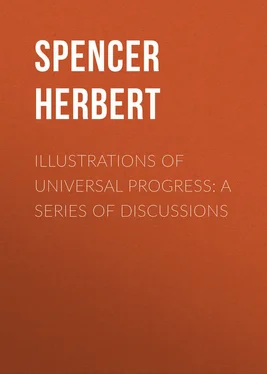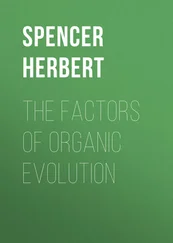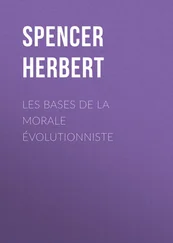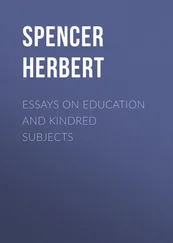Herbert Spencer - Illustrations of Universal Progress - A Series of Discussions
Здесь есть возможность читать онлайн «Herbert Spencer - Illustrations of Universal Progress - A Series of Discussions» — ознакомительный отрывок электронной книги совершенно бесплатно, а после прочтения отрывка купить полную версию. В некоторых случаях можно слушать аудио, скачать через торрент в формате fb2 и присутствует краткое содержание. Жанр: Философия, foreign_antique, foreign_prose, на английском языке. Описание произведения, (предисловие) а так же отзывы посетителей доступны на портале библиотеки ЛибКат.
- Название:Illustrations of Universal Progress: A Series of Discussions
- Автор:
- Жанр:
- Год:неизвестен
- ISBN:нет данных
- Рейтинг книги:4 / 5. Голосов: 1
-
Избранное:Добавить в избранное
- Отзывы:
-
Ваша оценка:
- 80
- 1
- 2
- 3
- 4
- 5
Illustrations of Universal Progress: A Series of Discussions: краткое содержание, описание и аннотация
Предлагаем к чтению аннотацию, описание, краткое содержание или предисловие (зависит от того, что написал сам автор книги «Illustrations of Universal Progress: A Series of Discussions»). Если вы не нашли необходимую информацию о книге — напишите в комментариях, мы постараемся отыскать её.
Illustrations of Universal Progress: A Series of Discussions — читать онлайн ознакомительный отрывок
Ниже представлен текст книги, разбитый по страницам. Система сохранения места последней прочитанной страницы, позволяет с удобством читать онлайн бесплатно книгу «Illustrations of Universal Progress: A Series of Discussions», без необходимости каждый раз заново искать на чём Вы остановились. Поставьте закладку, и сможете в любой момент перейти на страницу, на которой закончили чтение.
Интервал:
Закладка:
Having a common root with these, and gradually diverging from them, we find yet another controlling agency – that of Manners or ceremonial usages. All titles of honour are originally the names of the god-king; afterwards of God and the king; still later of persons of high rank; and finally come, some of them, to be used between man and man. All forms of complimentary address were at first the expressions of submission from prisoners to their conqueror, or from subjects to their ruler, either human or divine – expressions that were afterwards used to propitiate subordinate authorities, and slowly descended into ordinary intercourse. All modes of salutation were once obeisances made before the monarch and used in worship of him after his death. Presently others of the god-descended race were similarly saluted; and by degrees some of the salutations have become the due of all. 1 1 For detailed proof of these assertions see essay on Manners and Fashion .
Thus, no sooner does the originally homogeneous social mass differentiate into the governed and the governing parts, than this last exhibits an incipient differentiation into religious and secular – Church and State; while at the same time there begins to be differentiated from both, that less definite species of government which rules our daily intercourse – a species of government which, as we may see in heralds' colleges, in books of the peerage, in masters of ceremonies, is not without a certain embodiment of its own. Each of these is itself subject to successive differentiations. In the course of ages, there arises, as among ourselves, a highly complex political organization of monarch, ministers, lords and commons, with their subordinate administrative departments, courts of justice, revenue offices, &c., supplemented in the provinces by municipal governments, county governments, parish or union governments – all of them more or less elaborated. By its side there grows up a highly complex religious organization, with its various grades of officials, from archbishops down to sextons, its colleges, convocations, ecclesiastical courts, &c.; to all which must be added the ever multiplying independent sects, each with its general and local authorities. And at the same time there is developed a highly complex aggregation of customs, manners, and temporary fashions, enforced by society at large, and serving to control those minor transactions between man and man which are not regulated by civil and religious law. Moreover it is to be observed that this ever increasing heterogeneity in the governmental appliances of each nation, has been accompanied by an increasing heterogeneity in the governmental appliances of different nations; all of which are more or less unlike in their political systems and legislation, in their creeds and religious institutions, in their customs and ceremonial usages.
Simultaneously there has been going on a second differentiation of a more familiar kind; that, namely, by which the mass of the community has been segregated into distinct classes and orders of workers. While the governing part has undergone the complex development above detailed, the governed part has undergone an equally complex development, which has resulted in that minute division of labour characterizing advanced nations. It is needless to trace out this progress from its first stages, up through the caste divisions of the East and the incorporated guilds of Europe, to the elaborate producing and distributing organization existing among ourselves. Political economists have long since described the evolution which, beginning with a tribe whose members severally perform the same actions each for himself, ends with a civilized community whose members severally perform different actions for each other; and they have further pointed out the changes through which the solitary producer of any one commodity is transformed into a combination of producers who, united under a master, take separate parts in the manufacture of such commodity. But there are yet other and higher phases of this advance from the homogeneous to the heterogeneous in the industrial organization of society.
Long after considerable progress has been made in the division of labour among different classes of workers, there is still little or no division of labour among the widely separated parts of the community; the nation continues comparatively homogeneous in the respect that in each district the same occupations are pursued. But when roads and other means of transit become numerous and good, the different districts begin to assume different functions, and to become mutually dependent. The calico manufacture locates itself in this county, the woollen-cloth manufacture in that; silks are produced here, lace there; stockings in one place, shoes in another; pottery, hardware, cutlery, come to have their special towns; and ultimately every locality becomes more or less distinguished from the rest by the leading occupation carried on in it. Nay, more, this subdivision of functions shows itself not only among the different parts of the same nation, but among different nations. That exchange of commodities which free-trade promises so greatly to increase, will ultimately have the effect of specializing, in a greater or less degree, the industry of each people. So that beginning with a barbarous tribe, almost if not quite homogeneous in the functions of its members, the progress has been, and still is, towards an economic aggregation of the whole human race; growing ever more heterogeneous in respect of the separate functions assumed by separate nations, the separate functions assumed by the local sections of each nation, the separate functions assumed by the many kinds of makers and traders in each town, and the separate functions assumed by the workers united in producing each commodity.
Not only is the law thus clearly exemplified in the evolution of the social organism, but it is exemplified with equal clearness in the evolution of all products of human thought and action, whether concrete or abstract, real or ideal. Let us take Language as our first illustration.
The lowest form of language is the exclamation, by which an entire idea is vaguely conveyed through a single sound; as among the lower animals. That human language ever consisted solely of exclamations, and so was strictly homogeneous in respect of its parts of speech, we have no evidence. But that language can be traced down to a form in which nouns and verbs are its only elements, is an established fact. In the gradual multiplication of parts of speech out of these primary ones – in the differentiation of verbs into active and passive, of nouns into abstract and concrete – in the rise of distinctions of mood, tense, person, of number and case – in the formation of auxiliary verbs, of adjectives, adverbs, pronouns, prepositions, articles – in the divergence of those orders, genera, species, and varieties of parts of speech by which civilized races express minute modifications of meaning – we see a change from the homogeneous to the heterogeneous. And it may be remarked, in passing, that it is more especially in virtue of having carried this subdivision of function to a greater extent and completeness, that the English language is superior to all others.
Another aspect under which we may trace the development of language is the differentiation of words of allied meanings. Philology early disclosed the truth that in all languages words may be grouped into families having a common ancestry. An aboriginal name applied indiscriminately to each of an extensive and ill-defined class of things or actions, presently undergoes modifications by which the chief divisions of the class are expressed. These several names springing from the primitive root, themselves become the parents of other names still further modified. And by the aid of those systematic modes which presently arise, of making derivations and forming compound terms expressing still smaller distinctions, there is finally developed a tribe of words so heterogeneous in sound and meaning, that to the uninitiated it seems incredible that they should have had a common origin. Meanwhile from other roots there are being evolved other such tribes, until there results a language of some sixty thousand or more unlike words, signifying as many unlike objects, qualities, acts.
Читать дальшеИнтервал:
Закладка:
Похожие книги на «Illustrations of Universal Progress: A Series of Discussions»
Представляем Вашему вниманию похожие книги на «Illustrations of Universal Progress: A Series of Discussions» списком для выбора. Мы отобрали схожую по названию и смыслу литературу в надежде предоставить читателям больше вариантов отыскать новые, интересные, ещё непрочитанные произведения.
Обсуждение, отзывы о книге «Illustrations of Universal Progress: A Series of Discussions» и просто собственные мнения читателей. Оставьте ваши комментарии, напишите, что Вы думаете о произведении, его смысле или главных героях. Укажите что конкретно понравилось, а что нет, и почему Вы так считаете.












